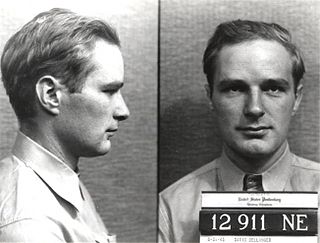A Quote by Jean Baudrillard
The war was won on both sides: by the Vietnamese on the ground, by the Americans in the electronic mental space. And if the one side won an ideological and political victory, the other made Apocalypse Now and that has gone right around the world.
Related Quotes
I'm not a political person. I don't understand politics, I don't understand the concept of two sides and I think that probably there's good on both sides, bad on both sides, and there's a middle ground, but it never seems to come to the middle ground and it's very frustrating watching it and seemingly we're not moving forward.
To reconcile conflicting parties, we must have the ability to understand the suffering of both sides. If we take sides, it is impossible to do the work of reconciliation. And humans want to take sides. That is why the situation gets worse and worse. Are there people who are still available to both sides? They need not do much. They need do only one thing: Go to one side and tell all about the suffering endured by the other side, and go to the other side and tell all about the suffering endured by this side. This is our chance for peace. But how many of us are able to do that?
[A]t the beginning of November 2001, there was a series of meetings between White House advisers and senior Hollywood executives with the aim of co-ordinating the war effort and establishing how Hollywood could help in the "war against terrorism" by getting the right ideological message across not only to Americans, but also to the Hollywood public around the globe the ultimate empirical proof that Hollywood does in fact function as an "ideological state apparatus.
Americans need help understanding their world now more than ever. [TV] believes it's filled its obligation to the public because it's presented both sides. But most of what we're living through now has multiple sides, and those sides, if you take the extreme oppositional views, have to be brought together for people to make a decision about how to act on the information.
In the past, I have made a point of pointing out that Donald Trump is not ideological. Now, to me, that means more than he's not just conservative or liberal. But I guess I'm gonna need to add to that. When I say he's not ideological - and I'll explain that again - he's not a conservative, and he's not a liberal. He knows what both things are. It's just not how he looks at the world, and it's not how he sees people. Now, to some people that's refreshing and it's good. To other people, it's alarming.
Certainly each side - the 'absolutists' and the 'constructivists' or 'humanists', as I've labelled them - accuses the other of hubris, and lays claim to humility. I see hubris on both sides: a pretence that we could ascend to an objective account of the world, on the one hand, and a pretence that we have the resources to live and act without a sense of there being something to which we answerable, on the other. So both sides are 'villains'.
The macro of any negotiation is that the only time you can cut a deal is when both sides are hurting. If either side is - is well and feeling happy, you can't get a deal. Then they go for victory. You need - if they're willing to settle for things the other side can live with, it's because they're hurting a little bit.






































